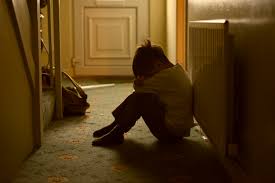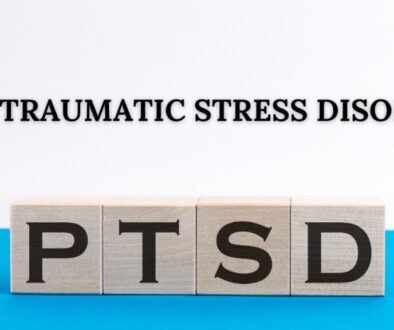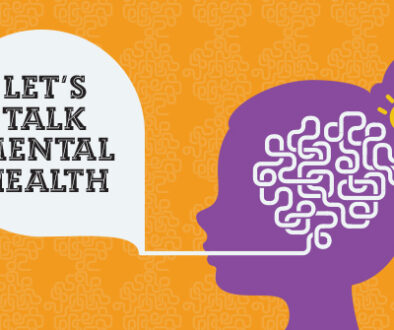Examining the Effects of Childhood Trauma on Adult Mental Health
Childhood trauma is a pervasive issue that affects millions of individuals worldwide, leaving lasting scars on their mental and emotional well-being. In this article, we will delve into the complex and often overlooked topic of how childhood trauma impacts adult mental health. By understanding the definitions, types, prevalence, and various effects of childhood trauma, we can shed light on the importance of addressing and healing from these experiences to promote overall well-being.
Childhood Trauma
Childhood trauma encompasses any adverse experiences that occur during childhood and have a lasting impact on an individual’s psychological and emotional development. This can include physical, emotional, or sexual abuse, neglect, exposure to violence, or living in a household affected by substance abuse or mental illness.
Types of Childhood Trauma
There are various types of childhood trauma that individuals may experience, each with its unique challenges and effects. These can include physical abuse, where a child endures physical harm or injury inflicted by a caregiver; emotional abuse, involving verbal attacks, rejection, or constant criticism; sexual abuse, which involves unwanted sexual contact or exposure to sexual content; neglect, where a child’s basic needs for food, shelter, or emotional support are not met; domestic violence, witnessing or being a victim of violence between caregivers; and exposure to substance abuse or mental illness within the family.

Prevalence of Childhood Trauma
Childhood trauma is more prevalent than many realize, with studies showing a significant portion of the population experiencing traumatic events during their formative years. The Adverse Childhood Experiences (ACEs) study conducted by the Centers for Disease Control and Prevention revealed that a high percentage of individuals have experienced at least one form of childhood trauma. This highlights the importance of understanding and addressing the impact of these experiences on mental health and overall well-being.
Impact of Childhood Trauma on Mental Health
Childhood trauma can have a profound impact on an individual’s mental health, leading to a range of emotional and psychological challenges that can persist into adulthood. The trauma experienced during childhood can disrupt the development of essential coping mechanisms and emotional regulation skills, leading to heightened stress responses and difficulty in managing emotions. This can result in increased vulnerability to anxiety, depression, and other mental health disorders.
Development of Mental Health Disorders
Individuals who have experienced childhood trauma are at a higher risk of developing mental health disorders later in life. The adverse experiences during childhood can shape the structure and function of the brain, influencing how individuals respond to stress and process emotions. This can increase the likelihood of developing conditions such as anxiety disorders, depression, substance abuse disorders, and even personality disorders. The impact of childhood trauma on mental health underscores the importance of early intervention and support to mitigate long-term consequences.
Relationship Between Childhood Trauma and PTSD
Childhood trauma is a significant risk factor for the development of Post-Traumatic Stress Disorder (PTSD), a complex and debilitating condition characterized by distressing symptoms such as intrusive memories, flashbacks, nightmares, and hyperarousal. Individuals who have experienced childhood trauma may struggle with symptoms of PTSD that stem from the traumatic events they endured. The relationship between childhood trauma and PTSD highlights the lasting impact of early adverse experiences on an individual’s mental well-being and the importance of trauma-focused interventions to promote healing and recovery.

Effects of Childhood Trauma on Relationships
Childhood trauma can significantly impact an individual’s ability to form and maintain healthy relationships in adulthood. The negative experiences and emotional wounds from childhood can manifest in difficulties with trust, intimacy, communication, and setting boundaries. Individuals who have experienced childhood trauma may struggle with feelings of unworthiness, fear of abandonment, and difficulties in forming secure attachments, leading to challenges in developing and sustaining healthy relationships with others.
Coping Mechanisms for Adults with Childhood Trauma
Adults who have experienced childhood trauma may benefit from developing healthy coping mechanisms to navigate the challenges they face. This can involve practices such as therapy, mindfulness, journaling, self-care, and engaging in activities that promote emotional regulation and healing. Developing a support network, setting boundaries, practicing self-compassion, and engaging in trauma-specific therapies like EMDR or cognitive-behavioral therapy can also be beneficial in managing the effects of childhood trauma.
Seeking Professional Help
Seeking professional help is crucial for individuals who have experienced childhood trauma and are struggling with its lasting effects on their mental health and well-being. Therapists, counselors, and mental health professionals can provide a safe and supportive environment for individuals to process their trauma, develop coping strategies, and work toward healing and recovery. Seeking help from a qualified professional can offer guidance, validation, and specialized interventions tailored to address the unique challenges that arise from childhood trauma.
Support Systems for Healing
Building a strong support system is essential for individuals healing from childhood trauma. This can involve connecting with understanding friends, family members, support groups, or online communities that provide empathy, validation, and encouragement. Support systems can offer a sense of belonging, validation of experiences, and a safe space to share emotions and struggles. Engaging in supportive relationships and seeking out resources that promote healing and self-care can aid in the journey towards recovery from childhood trauma.
Breaking the Cycle of Trauma
Breaking the cycle of trauma involves recognizing the impact of childhood trauma and taking steps to prevent its perpetuation across generations. This can include seeking therapy to address unresolved issues, educating oneself on healthy parenting practices, setting boundaries with toxic individuals, and actively working towards healing and personal growth. By breaking the cycle of trauma, individuals can create a positive legacy for future generations and promote healing within their families and communities.
Self-Care Strategies for Healing
Self-care is essential for individuals healing from childhood trauma, as it allows for the nurturing and restoration of mental, emotional, and physical well-being. Self-care strategies can include engaging in activities that promote relaxation and stress relief, such as mindfulness meditation, exercise, creative expression, or spending time in nature. Setting boundaries, practicing self-compassion, and prioritizing one’s own needs are also vital components of self-care that can support the healing process.
Importance of Awareness and Education
Raising awareness and educating others about the prevalence and impact of childhood trauma is crucial in promoting understanding, empathy, and support for individuals affected by these experiences. By increasing awareness and education around childhood trauma, communities can create safe spaces for healing, reduce stigma, and advocate for trauma-informed care and policies that address the root causes of trauma. Education can also empower individuals to recognize and address trauma in themselves and others, fostering a culture of compassion and healing.
Conclusion
Childhood trauma can have profound and long-lasting effects on individuals, shaping their relationships, mental health, and overall well-being. It is essential to acknowledge the impact of childhood trauma, seek professional help, and engage in self-care strategies to promote healing and recovery. Breaking the cycle of trauma, building support systems, and raising awareness about the importance of trauma-informed care are essential steps towards creating a more compassionate and understanding society. By fostering resilience, healing, and advocating for trauma-informed practices, individuals can work towards healing from childhood trauma and creating a brighter future for themselves and future generations.
Also Read:
The Ultimate Guide to Glowing Skin: Tips and Tricks



